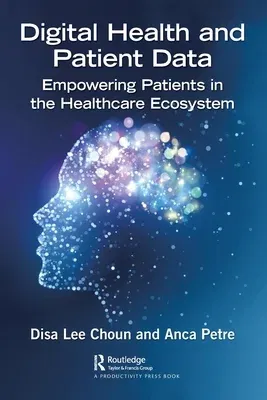Patients with unmet needs will continue to increase as no viable nor
adequate treatment exists. Meanwhile, healthcare systems are struggling
to cope with the rise of patients with chronic diseases, the ageing
population and the increasing cost of drugs.
What if there is a faster and less expensive way to provide better care
for patients using the right digital solutions and transforming the
growing volumes of health data into insights? The increase of digital
health has grown exponentially in the last few years. Why is there a
slow uptake of these new digital solutions in the healthcare and
pharmaceutical industries? One of the key reasons is that patients are
often left out of the innovation process. Their data are used without
their knowledge, solutions designed for them are developed without their
input and healthcare professionals refuse their expertise. This book
explores what it means to empower patients in a digital world and how
this empowerment will bridge the gap between science, technology and
patients. All these components need to co-exist to bring value not only
to the patients themselves but to improve the healthcare ecosystem.
Patients have taken matters into their own hands. Some are equipped with
the latest wearables and applications, engaged in improving their health
using data, empowered to make informed decisions and ultimately are
experts in their disease(s). They are the e-patients. The other side of
the spectrum are patients with minimal digital literacy but equally
willing to donate their data for the purpose of research. Finding the
right balance when using digital health solutions becomes as
critical as the need to develop a disease-specific solution.
For the first time, the authors look at healthcare and technologies
through the lens of patients and physicians via surveys and interviews
in order to understand their perspective on digital health, analyse the
benefits for them, explore how they can actively engage in the
innovation process, and identify the threats and opportunities the large
volumes of data create by digitizing healthcare. Are patients truly
ready to know everything about their health? What is the value of their
data? How can other stakeholders join the patient empowerment movement?
This unique perspective will help us re-design the future of
healthcare - an industry in desperate need for a change.

